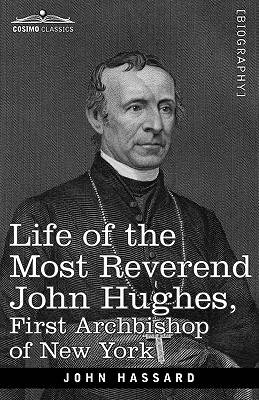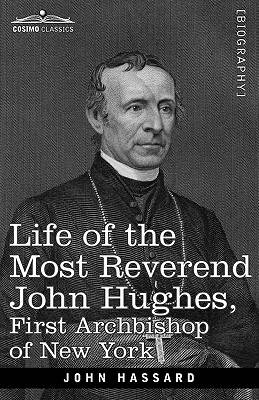
- Retrait gratuit dans votre magasin Club
- 7.000.000 titres dans notre catalogue
- Payer en toute sécurité
- Toujours un magasin près de chez vous
- Retrait gratuit dans votre magasin Club
- 7.000.0000 titres dans notre catalogue
- Payer en toute sécurité
- Toujours un magasin près de chez vous
Life of the Most Reverend John Hughes, First Archbishop of New York
John Hassard
Livre broché | Anglais
36,95 €
+ 73 points
Description
He published an article on "The Question of Ireland" in The Freeman's Journal, September 9th, 1848, blaming the insurgents for their lack of organization, recommending Catholics to give them no more money, and intimating that little of what was given reached its destination. He urged that inflammatory meetings, passionate appeals to the feelings of the people, societies, rifle-clubs, etc., should be discontinued. They could do no good, and were not only foolish, but dangerous and wicked. He determined that his own contribution to the fund in aid of the rebellion should be devoted to some more useful purpose. --from Chapter XVIII: 1847-1850 Catholic priest and Church administrator John Joseph Hughes was already an outspoken, even controversial figure in New York City long before Rome elevated the metropolis and appointed him the new archdiocese's first archbishop. Long a defender of the faith against the dominant Protestantism of the day--he had instigated a reorganization of the city's public school system to eliminate the Protestant overtones in the supposedly secular classrooms--he would later reject abolition yet support the Union during the Civil War, even to the point of acting as emissary to France on behalf of President Lincoln during the conflict. Here, in this classic 1866 biography--the only one available of this intensely private man who nevertheless was a renowned public influence and voice--journalist John Hassard explores extracts from the archbishop's private correspondence and utilizes personal details drawn from the memories of friends and relatives to create a complete, if uncritical, portrait of Archbishop Hughes, from his birth in Ireland through his education in America and his years in the New York cultural spotlight. More than just the life story of an overlooked but important figure in the history of New York City and the Catholic Church in America, this is also a valuable study of the city, the Church, and the attitudes of the mid 19th century. American newspaper editor and historian JOHN ROSE GREENE HASSARD (1836-1888) was the first editor of Catholic World Magazine. He is also the author of History of the United States of America (1878), Life of Pope Pius IX (1878), and Pickwickian Pilgrimage (1881).
Spécifications
Parties prenantes
- Auteur(s) :
- Editeur:
Contenu
- Nombre de pages :
- 528
- Langue:
- Anglais
Caractéristiques
- EAN:
- 9781605202792
- Date de parution :
- 01-11-08
- Format:
- Livre broché
- Format numérique:
- Trade paperback (VS)
- Dimensions :
- 140 mm x 216 mm
- Poids :
- 662 g

Les avis
Nous publions uniquement les avis qui respectent les conditions requises. Consultez nos conditions pour les avis.






